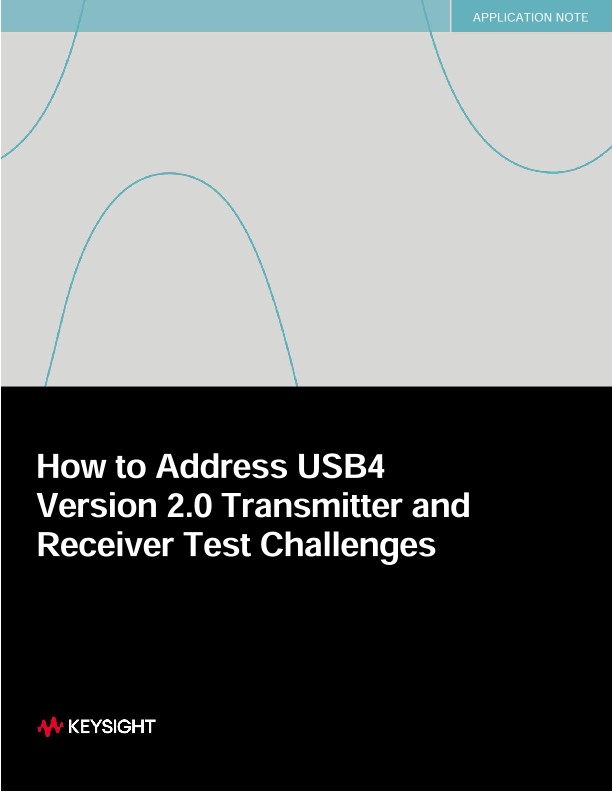
How to Address USB4 Version 2.0 Transmitter and Receiver Test Challenges
Application Notes
The Universal Serial Bus Type-C (USB-C) has become a ubiquitous and widely adopted interface in modern electronic devices. The connector supports a smaller form factor, higher data rate, more power capabilities, and flexible connectivity with other protocols. Key USB Type-C focus areas include connecting devices, managing power, and ensuring valid data transmissions.
The USB Type-C connector provides reversibility for ease of use and dynamic power up to 240 W with USB4 protocol. It is backward compatible with USB 2.0, USB 3.2, USB 3.1, and USB4. The alternate mode supports DisplayPort, HDMI, and PCIe® protocols for many new and future devices.
Design and test engineers face several challenges as they integrate USB Type-C into their products while ensuring interoperability and test compliance, especially as the data signaling standards increase in speed, the latest of which is USB4 Version 2.0. As the USB compliance test standards have become more complex, successful testing requires highly accurate and standard-compliant test instruments, software, and fixtures.